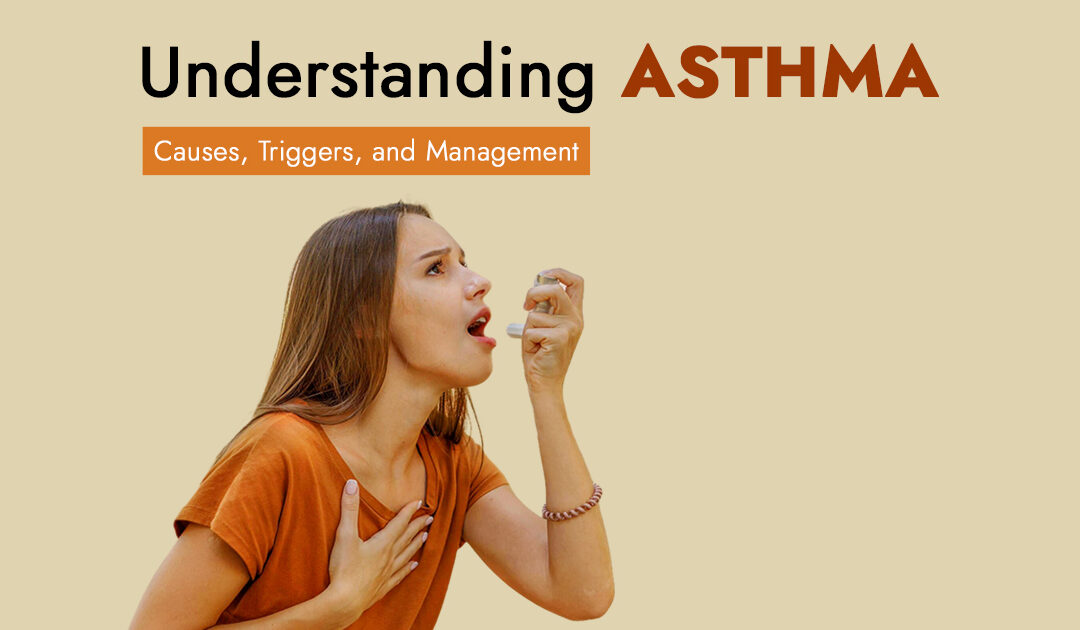
Asthma – Symptoms and Triggers
Millions of individuals worldwide suffer from the chronic respiratory disease known as asthma. It is characterized by airway restriction and inflammation, which can cause breathing difficulties, wheezing, coughing, and tightness in the chest. Asthma sufferers can lead active, satisfying lives even though there is no known treatment for the condition. Proper management and knowledge of symptoms and triggers can help.
Some symptoms include:
- Wheezing is the sound of whistling or squeaking that occurs during breathing, particularly during exhalation.
- A chronic, dry cough that is usually worse at night or in the morning.
- A sensation of pressure or constriction in your chest is known as chest tightness.
- Breathlessness is often caused by difficulty breathing.
Some triggers to keep an eye out for:
- Mold, pollen, dust mites, cat dander, and other airborne allergens can cause asthma episodes.
- Irritants include air pollution, tobacco (including secondhand smoke), harsh scents, and chilly air.
- Aspirin and nonsteroidal anti-inflammatory medicines (NSAIDs) are two examples of pharmaceuticals that can cause asthma attacks in certain individuals.
- Although a typical trigger for exercise-induced asthma (EIA), most asthmatics are still able to enjoy physical activity with the right medication and a warm-up regimen.
- Anxiety and emotional stress can occasionally exacerbate asthma symptoms.
- Gastritis (GERD), or stomach acid reflux, can occasionally irritate the airways and precipitate symptoms of asthma.
Asthma shouldn’t hold you back. With proper care and rest, you can tackle your asthma and lead a fulfilling life.







